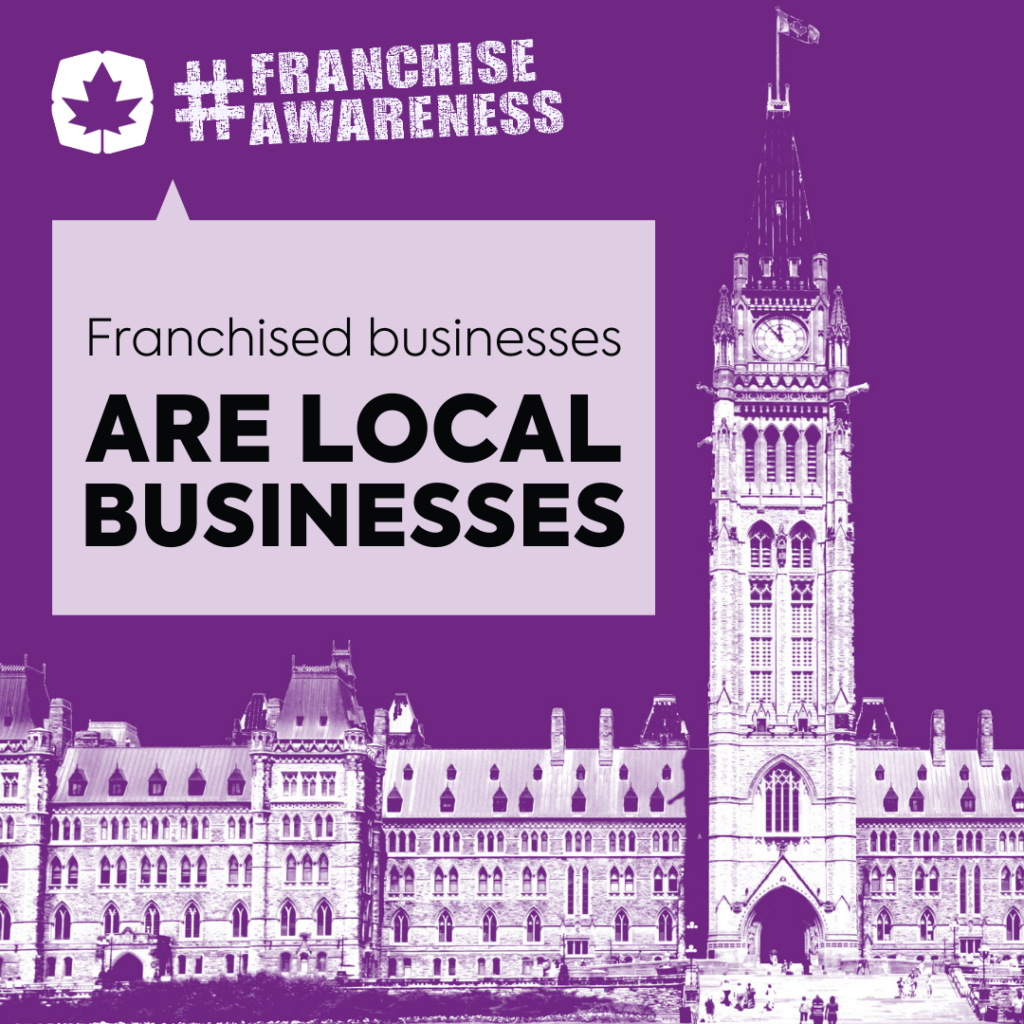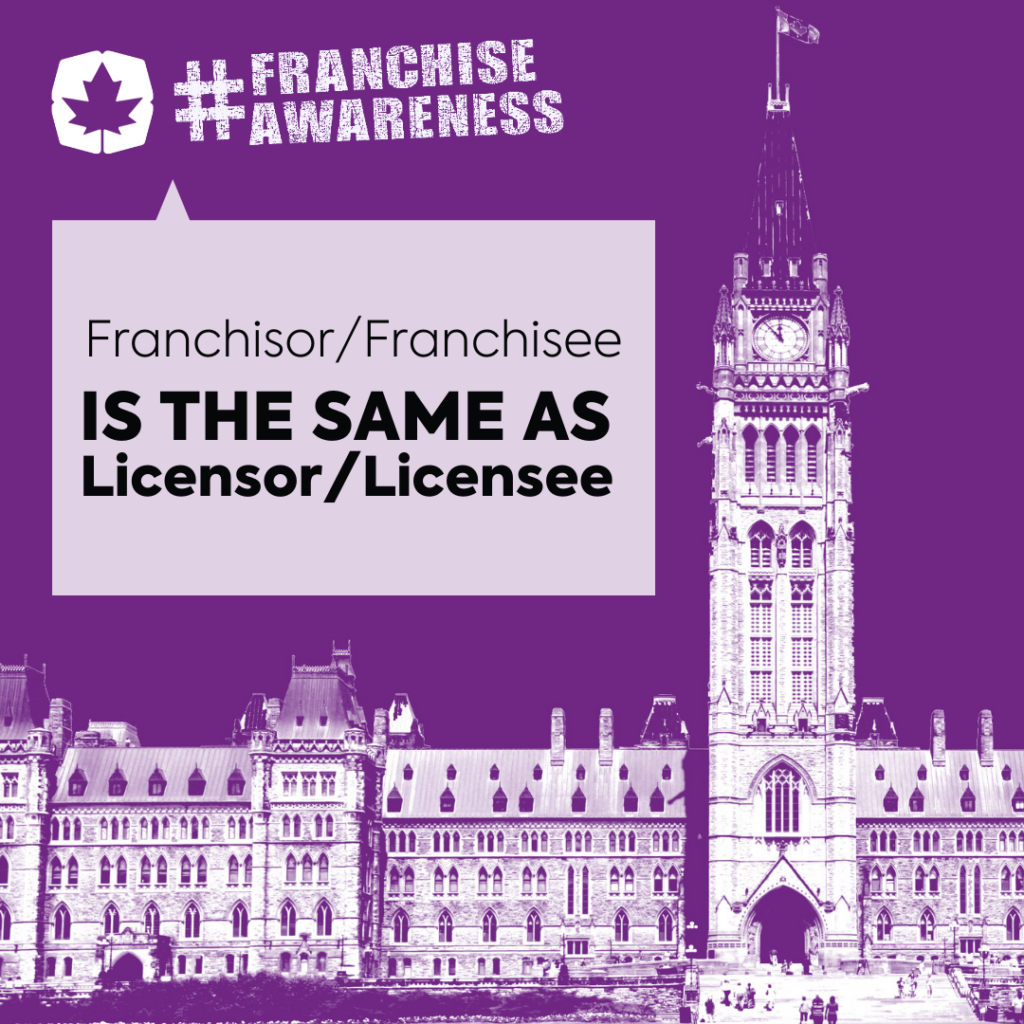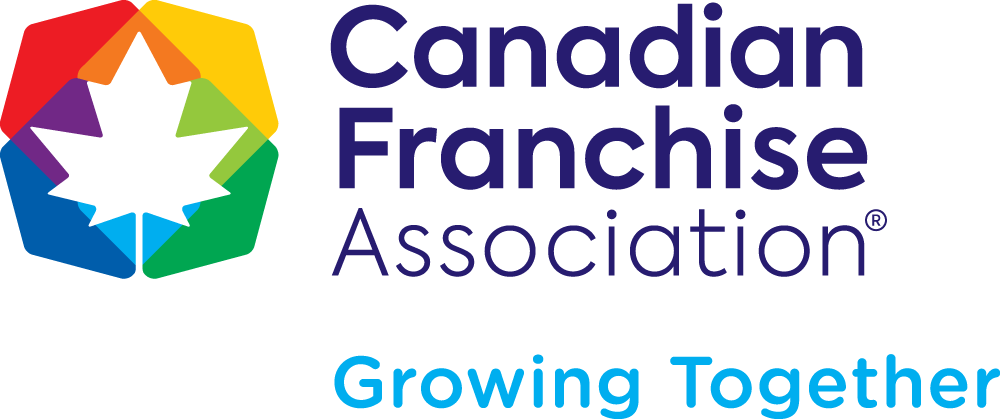Franchised businesses ARE Local businesses

You would be hard-pressed to find a Canadian neighbourhood without a franchised business. With franchise systems representing more than 50 different sectors, Canadians from Halifax to Victoria to Iqaluit are interacting with this business model on a daily basis. Whether it’s morning coffee, daycare, house cleaning, food services, dry cleaning, groceries, or a hotel stay, the franchise model provides services that are an important part of Canadians’ day-to-day lives.
There is a mistaken perception that franchised businesses are not local businesses.
While many brands are recognized across the country and across the world, local stores are owned by franchisees that live and work in their communities, from coast to coast to coast. Franchising is the most ubiquitous form of local business in Canada, and without ongoing support it will be completely devastated.
Pre-pandemic, franchised businesses contributed over $100 billion per year to the national economy and created jobs for more than 1.9 million Canadians.
Post-pandemic, franchised businesses contribute more than $120 billion per year to the national economy and create jobs for over 1.85 million Canadians.
Franchisor/Franchisee Relationship

Franchising is a contractual relationship between a licensor (franchisor) and a licensee (franchisee).
The franchisor provides systems, tools, and ongoing support so that franchisees have what they need to succeed.
Franchisees independently manage the day-to-day operations of their local businesses and work with the franchisor to make their local stores a success in their local markets.
